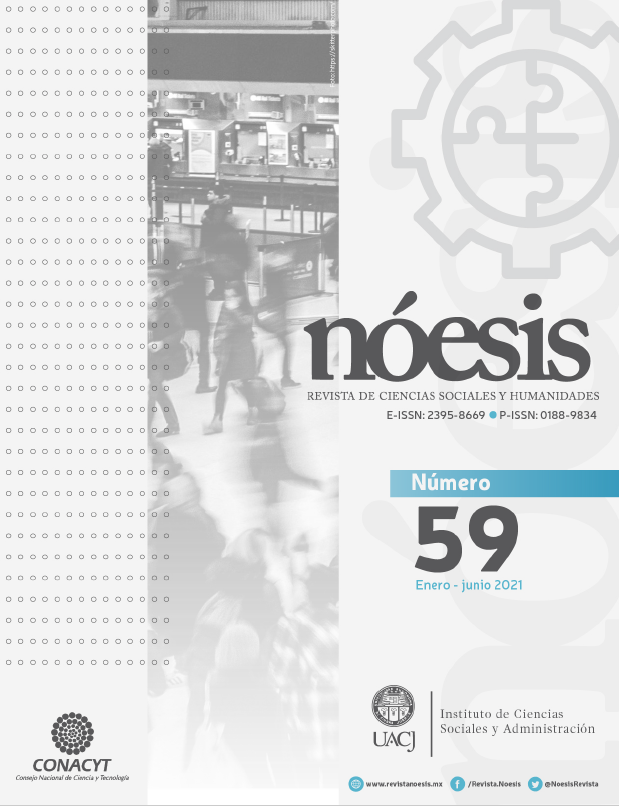Systematic Reviews as process of artificial selection of scientific knowledge in the healthcare area
Main Article Content
Abstract
The aim of this essay is to conceptualize and analyze, from the framework of evolutionary epistemology, systematic reviews as a process of artificial selection of scientific knowledge in healthcare area. Firstly it is analyzed the main assumptions of the evolution of scientific knowledge by natural selection. Subsequently, it is proposed that systematic reviews be considered as a form of meta-research, the latter being understood as a type of research whose object of study is scientific knowledge and its evaluation. Afterwards, it is proposed the concept of Artificial Epistemic Selection to refer to a process of epistemic selection different from the one described by the model of natural selection. Since systematic reviews have as one of their objectives the evaluation of the scientific studies that intend to be included in the review, it is concluded that they satisfy the criteria to be considered as a process of artificial epistemic selection.
Downloads
Article Details

This work is licensed under a Creative Commons Attribution-NonCommercial-ShareAlike 4.0 International License.
References
Bailar, J. (1997). The promise and problems of meta-analysis. New England Journal Medicine, 337, 559-561. https://doi.org/10.1056/NEJM199708213370810
Bunge, M. (1981). La ciencia, su método y su filosofía (1era ed.). Sudamericana.
Bunge, M. (1983). Treatise on Basic Philosophy (vol. 5). D. Reidel Publishing Company.
Bunge, M. (2004a). Epistemología (4ta ed.). Siglo XXI Editores.
Bunge, M. (2004b). La investigación científica, su estrategia y su filosofía (3era ed.). Siglo XXI Editores.
Bradie, M. y Harms, W. (2017). Evolutionary Epistemology. En E. N. Zalta (Ed.), The Stanford Encyclopedia of Philosophy (Spring 2017 ed.). https://plato.stanford.edu/entries/epistemology-evolutionary
Cálves, J. (2006). Modelos de cambio científico a partir de la selección natural: análisis y propuestas. Llull Revista de la Sociedad Española de Historia de las Ciencias y las Técnicas, 29, 221-257.
Carro, E. (2017). La calidad del reporte científico. Apuntes sobre la importancia, protocolos y recomendaciones. Revista de Psicología y Ciencias del Comportamiento de la Unidad Académica de Ciencias Jurídicas y Sociales, 8(2). 1-5. http://dx.doi.org/10.29365/rpcc.20171229-57.
Cascaes, F., Valdivia, B. A., da Rosa, R., Babosa, P. J. y da Silva, R. (2013). Escalas y listas de evaluación de la calidad de estudios científicos. Revista Cubana de Información en Ciencias de la Salud, 24(3), 295-312. http://dx.doi.org/10.36512/rcics.v24i3.438
Cerón, A. (2017). Cuatro niveles de conocimiento en relación a la ciencia. Una propuesta taxonómica. CIENCIA Ergo-Sum, 24(1), 83-90. https://doi.org/10.30878/ces.v24n1a9
Cziko, G. (2001). Universal Selection Theory and The Complementarity of Different Types of Blind Variation and Selective Retention. En C. Heyes y
D. Hull (Eds.) Selection Theory and Social Construction: The Evolutionary Naturalistic Epistemology of Donald T. Campbell (pp. 15-35). SUNY Press.
Edwards, B. (2014). What is the value of a systematic review? Journal of Shoulder and Elbow Surgery, 23(1), 1-2. https://doi.org/10.1016/j.jse.2013.09.001
Ferreira, I., Urrútia, G. y Alonso-Coello, P. (2011). Systematic reviews and meta-analysis: scientifc rationale and interpretation. Revista Española de Cardiología, 64(8), 688-696. https://doi.org/10.1016/j.recesp.2011.03.029
Greenhalgh, T, Thorne, S y Malterud, K (2018). Time to challenge the spurious hierarchy of systematic over narrative reviews? European Journal of Clinical Investigation, 48(6), e12931. doi: https://doi.org/10.1111/eci.12931
Gough, D., Oliver, S. y Thomas, J. (2012). Introducing systematic reviews. En D. Gough, S. Oliver y J. Thomas (Comp.). An introduction to Systematic Reviews (pp. 1-16). Sage.
Ionnadis, J. (2018). Meta-research: Why research on research matters. PLOS Biology, 16(3), e2005468. https://doi.org/10.1371/journal.pbio.2005468
Jansen, S. (2017, Fall). Bias within systematic and nonsystematic literature reviews: the case of the Balanced Scorecard [Master’s thesis, University of Twente]. Recuperado de: https://essay.utwente.nl/73771/1/Jansen_MA_BMS.pdf
King, P (2004). La noción de “variación ciega” en el ámbito del cambio científico: una defensa. Diánoia, 49(53), 93-110. https://doi.org/10.21898/dia.v49i53.399
Kuhn, T. (1971). La estructura de las revoluciones científicas. Fondo de Cultura Económica.
Letelier, L. M., Manriquez, J. J. y Rada. G. (2005). Revisiones sistemáticas y metaanálisis: ¿son la mejor evidencia? Revista Médica Chilena, 133, 246-249. http://dx.doi.org/10.4067/S0034-98872005000200015
Méndez-Bustos, P., Calati, R., Rubio-Ramirez, F., Olié, E., Courtet, P. y Lopez-Castroman, J. (2019) Effectiveness of Psychotherapy on Suicidal Risk: A Systematic Review of Observational Studies. Frontiers in Psychology, 10. https://doi.org/10.3389/fpsyg.2019.00277.
Moulines, U. (2011). El desarrollo moderno de la filosofía de la ciencia (1890-2000) (1era ed.). Universidad Nacional Autónoma de México; Instituto de Investigaciones Filosóficas.
Murad, M. H., Asi, N., Alsawas, M. y Alahdab, F. (2016). New evidence pyramid. Evidence-Based Medicine, 21(4), 125–127. https://doi.org/10.1136/ebmed-2016-110401.
Richards, S. (2005). Filosofía y sociología de la ciencia (5ta ed.). Siglo XXI Editores.
Rysiew, P. (2017). Naturalism in Epistemology. En E. N. Zalta (Ed.), The Stanford Encyclopedia of Philosophy (Spring 2017). https://plato.stanford.edu/archives/spr2017/entries/epistemology-naturalized
Sampaio, R. F. y Mancini, M. C. (2007). Systematic review studies: a guide for careful synthesis of scientifc evidence. Revista Brasileña de Fisioterapia, 11(1), 77-82. https://doi.org/10.1590/S1413-35552007000100013
Trochim, W. M. (2007). Evolutionary Perspectives in Evaluation: Theoretical and Practical Implications. 30th Annual Conference of the Eastern Evaluation Research Society, Absecon.
Urban, J. B., Hargraves, M. y Trochim, W. M. (2014). Evolutionary Evaluation: Implications for evaluators, researchers, practitioners, funders and the evidence-based program mandate. Evaluation and Program Planning. 45, 127–139. https://doi.org/10.1016/j.evalprogplan.2014.03.011.
Ursua, N. (1993). Cerebro y conocimiento: un enfoque evolucionista (1era ed.). Anthropos.
Wuketits, F. (2001). The philosophy of Donald T. Campbell: A short review and critical appraisal. Biology and Philosophy, 16(2), 171-188. https://doi.org/10.1023/A:1006721104642
Zeng, X., Zhang, Y., Kwong, J. S., Zhang, C., Li, S., Sun, F., Niu, Y. y Du, L. (2015). The methodological quality asessment tools for preclinical and clinical studies, systematic review and meta-analysis, and clinical practice guideline: a systematic review. Journal of Evidence-Based Medicine, 8(1), 2-10. https://doi.org/10.1111/jebm.12141

